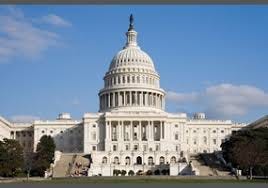How to Hurt People
“Anti-competitive mergers can hurt people.” So said President Joe Biden, announcing new anti-trust guidelines for the FTC (Federal Trade Commission).
It takes a lot of gall for a politician to make a statement like that. Or maybe it’s just plain idiocy. Maybe both.
There’s no mention of the fact that, if some private business fails to heed FTC’s anti-trust guidelines (whatever they are), it will get a friendly visit from government enforcers, armed with whatever weapons it will take to extract fines or imprisonment. ALL government rules and regulations are backed up with these kinds of threats. It affects us all, from big corporations down to the little guy.
When it comes to hurting people, government is the undisputed champ. Only government has the legal power to use physical violence to enforce its will. In the free market, merchants lack that power, and so must rely on voluntary cooperation. All they can do is try to persuade you to buy their products, or pay you money to come work for them. The free market uses positive incentives. Government uses negative incentives.
Government’s only legitimate role in a civilized society is to defend life and property from coercion or theft - and that’s a pretty darn small role. But there’s this nasty tendency to believe that government has super-human intelligence or honesty, that government always knows best, that government never makes mistakes. And if anybody thinks otherwise, well, government agents can and will use whatever level of force it takes to convince them otherwise.
Which brings us to the FTC and its newest antitrust rules and regulations. Chairwoman Lina Khan and her minions somehow think that they know best how big a company should be, and with whom they should be allowed to merge or form partnerships - else it might stifle competition and “harm” people. They have the power to enforce their rules, and are not afraid to use it. Come to think of it - if any entity out there is guilty of competition-stifling behavior, it should be the FTC itself!
As I have often argued: if government really wants to promote competition and prevent “monopolies,” they’re going about it totally backwards. The correct strategy is less government meddling, not more. Abolish all the red tape, the constraints, the bureaucracy, and obstacles to market entry, such as licensing requirements and government-required certification. Reduce (or eliminate) taxes and abolish wage and price controls. End the subsidies and “crony capitalism” that favor some industries (green energy, etc.) or other special businesses. End taxpayer support of services like education, roads, retirement insurance, and air traffic control so that other innovative alternatives have a chance to compete. Open up closed markets such as utilities and mail delivery and other “natural monopolies” to any businessman who thinks he can do a better job (there is nothing “natural” about government enforcers threatening a startup for the crime of competing). You want scrappy startup companies, lots of them, nipping at the heels of the big boys.
But backwards is probably how this issue will play out. When one looks back at history, one notices a constant pattern: when there is disagreement between free market supporters and big government supporters, the pro-government crowd usually wins. Thus over time, government gradually becomes bigger and bigger - never mind that the original idea behind this great nation was minimal government and maximum freedom. Will there ever come a day when the pro-government crowd realizes that they’ve won all their battles, and now can rest back on their laurels and savor their victories? Judging from history: not likely.
All we can do is keep preaching the gospel of liberty. Fortunately, core political principles are really quite simple. In my article The Right to Say No I rejected all those needlessly complex arguments about speech and religion and LBGTQ rights, and explained that it really comes down to nothing more than the freedom to say NO. A good example of how not to promote liberty could be found in the WSJ, who printed an article where the authors, two college professors, went into excruciating detail, with tons of facts and figures and statistics and ratios and such and extensive market research into corporate behavior, all to show how Biden’s antitrust policies were inadvisable. My eyes glazed over halfway through it. I think that their bottom-line conclusion was the same as mine, but ... it’s not that complicated!! The whole anti-antitrust argument can be condensed down to this simple concept: competition will happen, if you let it.
And if someone from the government says they’re here to help you, or prevent you from getting “hurt”, don’t buy it.








